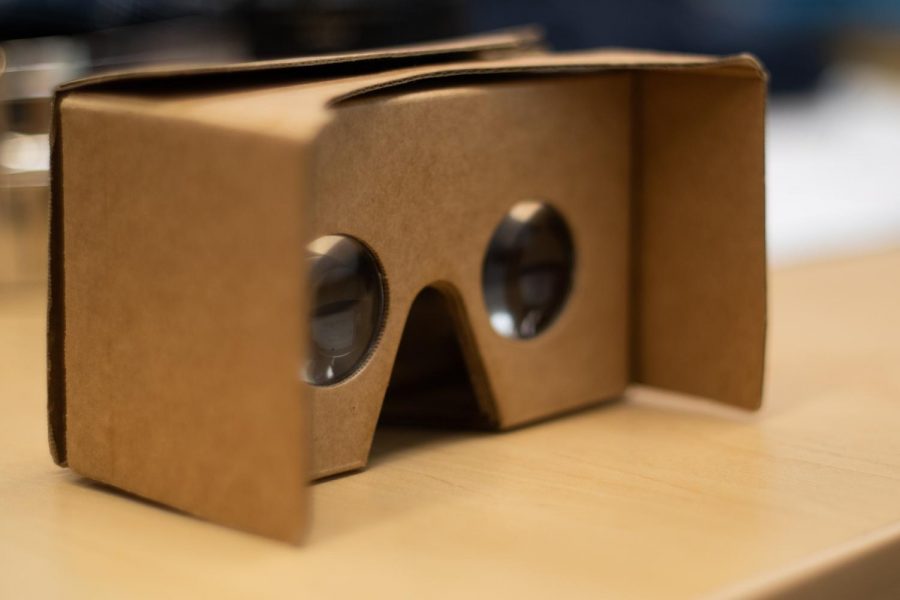Metaverse: The Future Facebook Shouldn’t Build
Many people heralded the novel “Ready Player One” for its vision of the future in its online world called the Oasis. Still, its bleak picture for the future is becoming a reality because of Meta – Facebook’s parent company.
December 1, 2021
Are we on the brink of an invention that could alter our lives on a scale comparable to the creation of the internet?
Imagine waking up, eating breakfast while putting on your favorite sweatpants, and entering a digital workspace where you can interact with peers just as you would now. Unlike applications like Zoom, in this ‘metaverse,’ a user would have even more opportunities for productivity and collaboration than they ever would in person.
The metaverse – a virtual reality space where users interact with digital items – would exist in a solely digital space and provide a new promise of removing limits, giving new creative liberties, and allowing the internet to be transformed and built as a world for creators. Meta, formerly known as Facebook, is the current leader in creating the metaverse.
Over the last decade, Meta has been purchasing key companies to work establishing their metaverses, such as its acquisition of Instagram in 2012 and both WhatsApp and Oculus in 2014. All of these purchases may have seemed peculiar at the time, but they have now built up Meta’s portfolio of internet services. Meta is hoping to combine these different assets into one cohesive digital space where users can communicate, spend money, and work.
However, social media companies like Facebook continue to increasingly influence our personal lives, workplaces, and even our democracy – and this isn’t a good thing. Currently, governments are having issues even regulating large companies that already control so much of our lives. The current interactions on Facebook, Instagram, WhatsApp, and Oculus are in this walled garden Meta has created. A walled garden is where users will be locked-in to the service they are using. These metaverses will combine and amplify the influence of these large companies.
Meta has already started to digitize their workplaces and entertainment with products such as Workplaces and Oculus. Currently, Meta is working on developing general communications spaces and also powering the next general economy. These mega-platforms will then have access to every part of our lives for every person in the world. Opting out of the metaverse would become less and less of an option for many Americans, cutting off any users stuck behind the digital divide from the new reality.
Furthermore, there are still many unresolved ethical issues with the metaverse.
For example, do digital possessions work in a digital world? What happens to all of your digital possessions if the metaverse you chose gets shut down? How will people communicate with each other across metaverses? How much information is acceptable for these platforms to collect?
These are all questions that Meta and, by extension, the rest of the metaverse industry, such as Epic Games, Nvidia, Valve, Microsoft, and Magic Leap, have failed to answer so far. If any significant metaverse were to get built, all these serious issues would need to be addressed.
However, this future is not upon us yet. We can still decide to prevent new monopolistic behavior from taking control of our lives by limiting the reach of the technopolies of today to prevent their takeover tomorrow.





